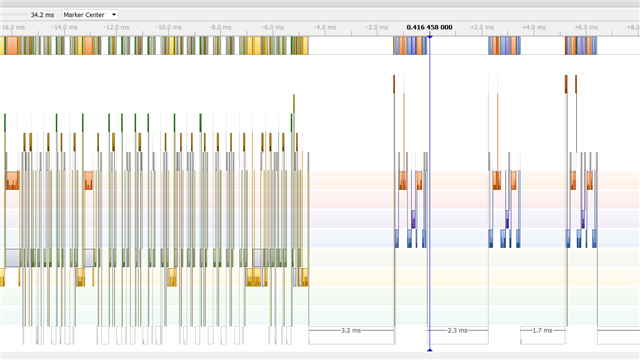Hi,
I have quite demanding SPI device which should send its data over BLE.
Thanks to throughput example i was able to achieve maximum transfer speeds for synthetic tests (without SPI).
Sadly after adding real data input, I noticed that no transfer is executed until I finish my commands.
Thanks to SystemView I was able to narrow this problem to one part of configuration -> rpmsg.

Colors:
Green -> spi thread
Yellow -> bt_hci thread
Orange -> ble host TX
Red (small squere in top) - IRQ 58 from probably ipc, but i wasnt able to find it in manual (not listed)
Blue - probably openAmp mailing work queue thread
purple - systemwork queue
SystemView Data Log
4010.BleProblem.dat
Here is repo with configs etc.
https://github.com/DuMaM/bitly_nrf5x



